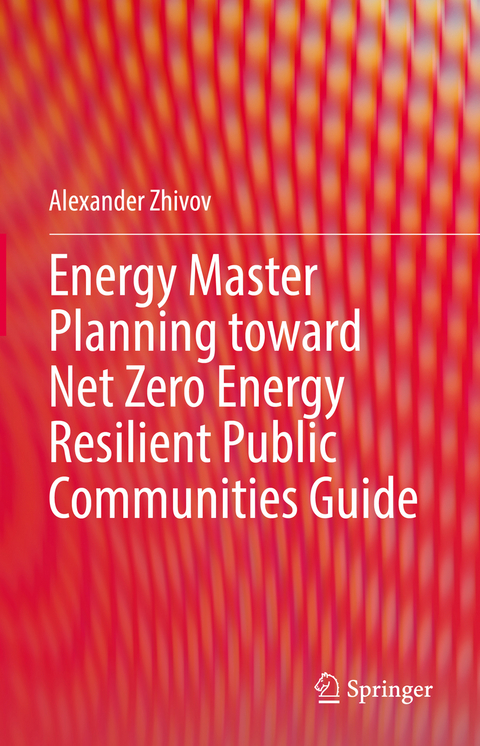
Energy Master Planning toward Net Zero Energy Resilient Public Communities Guide
Springer International Publishing (Verlag)
978-3-030-95832-9 (ISBN)
Best practices from around the world have proven that holistic Energy Master Planning can be the key to identifying cost-effective solutions for energy systems that depend on climate zone, density of energy users, and local resources. Energy Master Planning can be applied to various scales of communities, e.g., to a group of buildings, a campus, a city, a region, or even an entire nation.
This Guide is a result of research conducted under the International Energy Agency (IEA) Energy in Buildings and Communities (EBC) Program Annex 73 and the US Department of Defense Environmental Security Technology Certification Program (ESTCP) project EW18-5281 to support the planning of Low Energy Resilient Public Communities process that is easy to understand and execute.
lt;p>Dr. Alexander Zhivov is a senior research engineer responsible for Army-wide facilities energy strategic planning leading to implementation of new HVAC systems, distributed generation technologies, renewable energy, heating plant modernizations, building commissioning processes, and modeling and analysis tools for installation operations. Develop the framework and concepts of a secure, reliable, and efficient Army installation energy strategy and supporting implementation programs. Dr. Zhivov is a Fellow and Life member of the American Society of Heating, Refrigeration and Air-Conditioning Engineers and holds a Ph.D. degree in mechanical engineering and an MBA degree.
More than 50 subject matter experts from Australia, Austria, Denmark, Finland, Germany, Norway, United Kingdom and the United States of America substantially contributed to the content of the Guide under the International Energy Agency Energy in Buildings and Communities Program Annex 73 and the US Department of Defense Environmental Security Technology Certification Program projects.
Part 1. Executive Summary overview for decision makers - Part 2. Community Energy Planning.- Introduction and lessons learned from best practices.- Energy Planning as a Part of the Community Master Plan.- Methodology of Energy planning process (Subtask D).- Establishing Energy Goals, Objectives and Constraints for Energy Planning Process.- Data required for energy master planning.- Integrating Resilience into the Energy Master Planning Framework.- Technologies and systems architectures for Baseline, Base Case and Alternatives.- Energy performance calculation method of complex energy systems.- Multi criteria analysis of alternatives and scenario selection.- Scenario selection and long-term energy strategy.- Appendixes.
| Erscheinungsdatum | 15.06.2022 |
|---|---|
| Zusatzinfo | LXXVIII, 667 p. 1 illus. |
| Verlagsort | Cham |
| Sprache | englisch |
| Maße | 155 x 235 mm |
| Gewicht | 1346 g |
| Themenwelt | Naturwissenschaften ► Biologie ► Ökologie / Naturschutz |
| Technik ► Elektrotechnik / Energietechnik | |
| Schlagworte | Deep energy retrofit for buildings • Energy efficiency and retrofit • international energy agency • Low carbon futures • Sustainable architecture and building maintenance |
| ISBN-10 | 3-030-95832-9 / 3030958329 |
| ISBN-13 | 978-3-030-95832-9 / 9783030958329 |
| Zustand | Neuware |
| Haben Sie eine Frage zum Produkt? |
aus dem Bereich


